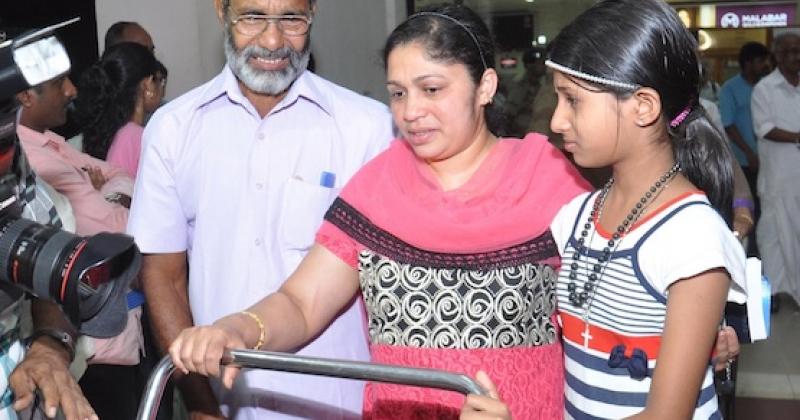Siji Antony was initially thrilled when, after many hurdles, she received her visa for a medical nurse's job in Saudi Arabia in 2013. A handsome salary and the lure of a big city added to the excitement. But her joy was short-lived.
The restrictions on the practices of her Catholic faith in the kingdom was a major cause for concern. In her home state of Kerala in southern India, she attended Mass daily. "The prospect of living without Sunday Mass was horrifying for me," she said.
Siji belongs to the Syro-Malabar rite, one of the three rites that make up the Catholic Church in India. Based in Kerala, they trace the origin of their faith to St. Thomas the Apostle who, according to tradition, visited India in the first century and where it is said he died.
The Catholic Church in India comprises the Latin rite and two Eastern rites called Syro-Malabar and Syro-Malankara. The Latin rite follows the Roman liturgy introduced by European missioners in the 15th century, while the two Eastern rites, both based in Kerala follow Syrian Church traditions.
Starved of a religious practice she was accustomed to, Siji thought of inviting her Christian colleagues on Sundays for group prayer in her hostel room. However, her colleagues were quick to inform her that it was too risky as the kingdom does not allow non-Muslim religious gatherings or use of religious symbols like the Bible, crucifix or statues.
"I can only pray silently in my room. I have done so for the last four years. I speak of my miseries to God directly," Siji told ucanews.com. She is now searching for a job in the United Arab Emirates (UAE), where the rulers permit people to practice their different faiths.
Thanks to the power of the petrodollar, cities in the Persian Gulf have become hot spots for economic migration from southern India over the past four decades. According to official estimates, some 2.4 million people live in Middle Eastern cities working as unskilled laborers, engineers, and medical professionals.
Of these, church records list some 400,000 Catholics of the Syro-Malabar rite. A 2013 church survey revealed some 75 percent of the migrants are young people aged between 20 and 32.
Father Shaji Kochupurayil, secretary of the Syro-Malabar church's Commission for Evangelization and Pastoral Care of the Migrants, said the migrants have spread across nations such as Bahrain, Qatar, Kuwait, Oman, UAE and Saudi Arabia.
The situation in Saudi Arabia "is very difficult" regarding religious practices of Christians, Father Kochupurayil told ucanews.com.
"We can only provide very limited pastoral service to Catholics in that Islamic country. Without disturbing the neighbors, various communities there are practicing their religion," Father Kochupurayil said.
Suja Mathew, who has been living in Dubai for the past 25 years, said the city's biggest St. Mary's Catholic Church, where she and her family go for Mass, struggles to cater to Catholics of different ethnic groups from across the globe.
The church, which can accommodate some 2,000 people, conducts six to seven Masses in English on Friday, Saturday, and Sunday. However, "it is difficult to find space inside the church on Fridays when the obligatory Mass is celebrated in Malayalam. If we don't arrive 30 minutes ahead of schedule, we are required to stand outside", she added.
Another migrant, Siby Xavier, who has worked in Abu Dhabi since 1995, said the St. Joseph Church had Malayalam Mass for people from Kerala on Fridays and Saturdays. He said the church also conducts catechism classes and offers all other sacramental services for Catholics from Kerala.
Father Kochupurayil said the Catholic Church in Kerala offers regular help to hold services such as Masses, first communions, family unit prayers and catechism classes in Qatar and Kuwait. "In other locations, we lack facilities for such services," he said.
The Syro-Malabar rite has a church of its own in Doha, Qatar. In other countries in the Middle East, he said, the church relies on other common facilities for worship provided by two apostolic vicariates of Northern Arabia and Southern Arabia, that follow the Latin rite liturgy and covers the entire Persian Gulf region.
The priest said the Syro-Malabar church collaborates with these vicariates to prepare young people for marriage. They have also been making various efforts to ensure proper pastoral care to the Syro-Malabar Catholics in the area.
